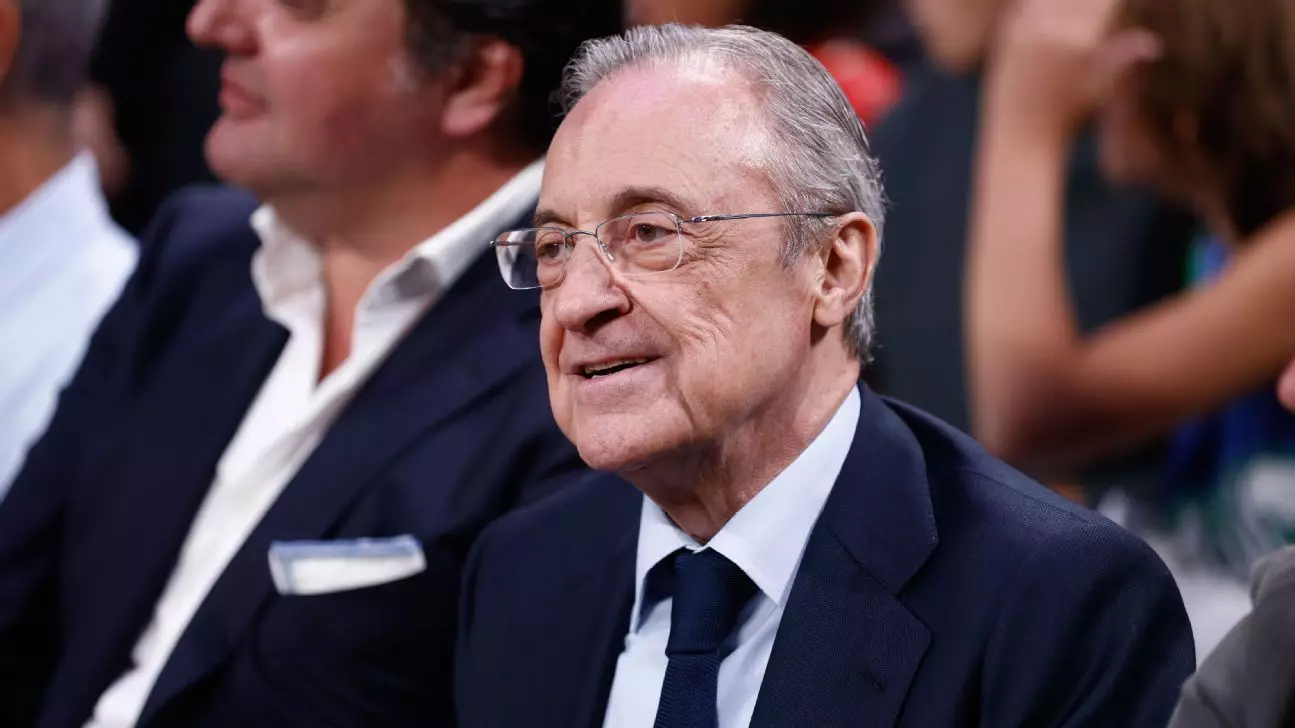The Ballon d’Or, a prestigious accolade in the world of football, serves not only as a recognition of individual player excellence but also encapsulates the cultural nuances and biases inherent in sports journalism. Recently, the award’s outcome has ignited a fiery debate, particularly concerning the non-selection of Vinícius Júnior for the 2024 Ballon d’Or despite his significant contributions to Real Madrid’s success. The controversy involves Florentino Pérez’s vocal criticism of certain journalists whose votes were seen as detrimental to the Brazilian winger’s chances of receiving the award.
During a recent Real Madrid Annual General Meeting (AGM), Pérez took aim at journalists from countries he deemed lesser-known in the footballing arena. He accused media representatives from Namibia, Uganda, Albania, and Finland of being ill-informed, arguing that their votes compromised the integrity of the Ballon d’Or. This accusation stirred the pot, inviting immediate backlash from Sheefeni Nikodemus, a Namibian journalist who contended that such assertions stemmed from Pérez’s frustration over the voting outcome.
Nikodemus articulated his discontent during an interview with Cadena SER’s El Larguero show, suggesting that Pérez’s reaction reflects narrow-mindedness rather than a solid argument. He challenged the notion that journalists hailing from countries perceived as lesser players in the footballing hierarchy deserve to have their opinions dismissed. This exchange illustrates a deeper debate about the legitimacy of votes from countries that may not seem to be at the forefront of football talent.
Vinícius’s remarkable season witnessed Real Madrid clinching both the LaLiga title and the UEFA Champions League. Despite his success at the club level, his performance during Brazil’s Copa América overshadowed his achievements. Votes for the Ballon d’Or are tallied based on rankings from a panel of 100 journalists, who award points to their top choices. However, the juxtaposition of Rodri’s impressive performances in leading Spain to victory at Euro 2024 is notable, as he ultimately clinched the award with 1,170 points over Vinícius’s 1,129.
In this context, it becomes evident how the significant impact of international tournaments can skew perceptions of a player’s worthiness for accolades like the Ballon d’Or. While Vinícius thrived in club contests, his national team results highlighted the complexities that influence voting.
Pérez’s Standpoint: National Bias in Voting
Pérez’s insistence that the Ballon d’Or voting process requires greater oversight and should be led by renowned football personalities opens a Pandora’s box of potential biases. His opinionated stance underscores a longing for a voting community that shares an intrinsic understanding of football’s culture—one that he believes is missing when votes come from journalists in countries without rich footballing legacies.
The assertion that had those votes not counted, Vinícius would have emerged victorious brings to light a contentious argument frequently made regarding the objectivity of individual awards. It invites a broader discussion on how regional affiliations shape vote decisions, often overshadowing an athlete’s holistic achievements based solely on the weight of their local or international performance.
Broader Implications for Football and Journalism
The ongoing friction between Pérez and marginalized journalists prompts essential questions about diversity in football commentary and analysis. The dialogue should center not only on how votes translate into awards but also consider how media representation reflects the global nature of the sport.
The resistance displayed by less prominent countries in the global football arena highlights the need for greater inclusivity within sports journalism. The dismissal of their perspectives could signal a disconnect in understanding the universal appeal of football, a sport cherished by nations regardless of their prowess on the world stage.
Ultimately, the debate sparked by this year’s Ballon d’Or voting transcends mere numbers and individual performance. It is a call for unity among journalists, players, and fans alike. It underscores the importance of all voices in the international football conversation, advocating for a richer, more diverse representation that acknowledges talent from all regions. While accolades such as the Ballon d’Or are essential in recognizing excellence, they must also reflect the shared love and complexities of the game that resonate globally. As the conversation continues, the hope is for a more equally representative platform where every vote—no matter the origin—holds valid weight.

